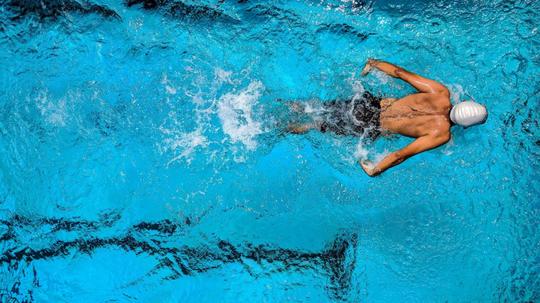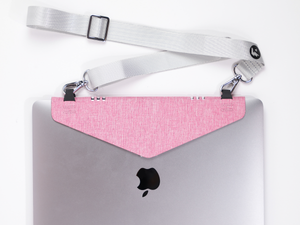
In the United States, around 300,000 sports-related concussions are reported annually, according to the American Journal of Sports Medicine.
Among individuals ages 15 to 24, sports are second only to car crashes as the leading cause of concussions. While contact sports like football and hockey have the most reported concussions, head injuries are not unheard of in swimming.
And they're a near constant worry for David Burns, who has been coaching swimming in the Twin Cities for more than 25 years. Burns often teaches large classes with up to 40 students. During one of these busy practices, two students hit their heads, and one left class with a minor concussion.
"There's a gaping hole in helmetry when it comes to swimming," Burns said.
Theresa Finn became concerned about head injuries in swimming after her son hit his head in the pool while warming up for a swim meet. He didn't get a concussion, but his head injury forced him out of the competition that day.
To combat concussions in sports like swimming, diving and synchro, Burns and Finn co-founded Hammer Head, a startup creating swim caps that prevent head injuries.
Developing a helmet-like swim cap is easier said than done. Competitive swimming is all about speed, and swimmers often wear extra-tight gear in the hopes of shaving a few fractions of a second off their time. If Hammer Head's creators wanted to add padding to a swim cap, they'd have to do so without creating drag or extra weight.
Working with a team of engineers, Minneapolis-based Hammer Head developed a trademarked design called "honeycomb impact technology," a layer of silicon built into the cap filled with circular indents that cushions potential collisions. Burns said that Hammer Head is slightly heavier than traditional caps, but the material is buoyant and wrinkle-free, which prevents drag.
In Burns' experience, swimmers get concussions after taking a series of small hits, rather than one big one. This could happen by colliding with the wall while doing the backstroke, or hitting another swimmer. It's a problem that affects all ages in the sport, but Hammer Head has seen a lot of interest in its product from triathletes and younger swimmers.
"Your confidence as a swimmer goes severely down if you hit the wall," Burns said. "Some kids will not do backstroke after they hit their head.
Finn joined the Hammer Head team early on, but left her job of 15 years in February to become the company's full-time CEO.
Each cap sells for $34.95. Teams can purchase them in bulk for a discount. This has been an increasingly popular option, said Finn, who added that some insurance companies offer discounts on policies to schools or swim programs that have a plan in place to prevent concussions.
Finn said that Hammer Head has five international patents in the U.S., Canada, China, Europe and Australia. The company hopes to eventually translate its honeycomb design to other sports.
"Our whole mission has always been, 'Let's go out there and make a difference by protecting these kids and athletes," Burns said. "We've never looked back."








